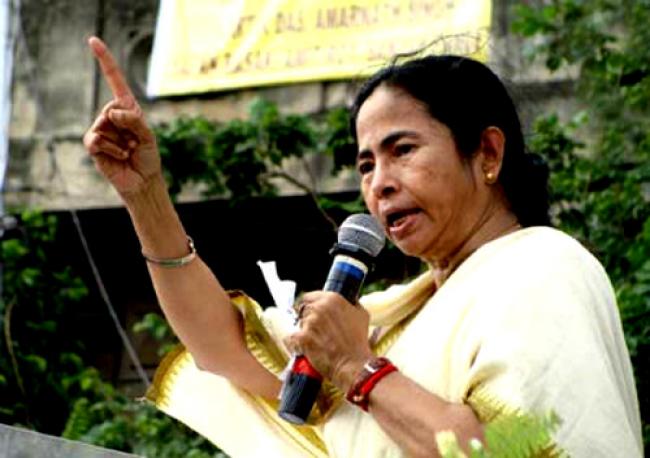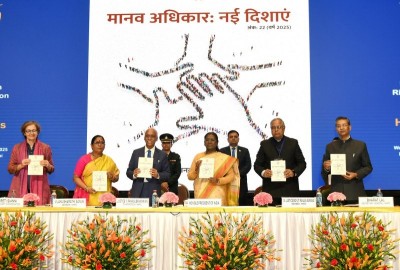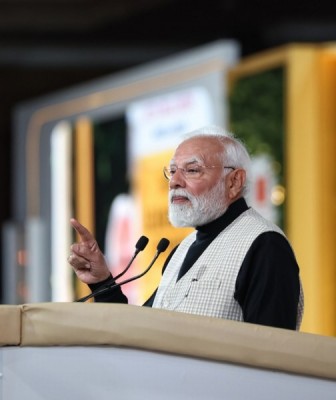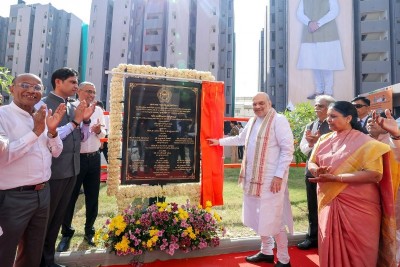
West Bengal: No Place to Hide
And in 2013, the story is no different for the Maoists. According to Union Ministry of Home Affairs (UMHA) data, no fatality in Maoists violence was recorded in West Bengal in 2013, as in 2012. Further, there was just one incident of Maoist violence recorded in West Bengal in 2013 against six incidents in 2012.
Partial data collected by the South Asia Terrorism Portal (SATP) confirms this trend and records no fatality in the civilian and SF categories, though one Maoist fatality in a Left Wing Extremism (LWE)-related incident was recorded in 2013: Hemanta Mahato, a leader of the CPI-Maoist-backed People's Committee against Police Atrocities (PCPA), was beaten to death by angry villagers of Nedabahara in Jhargram Police District of West Bengal on August 17, 2013.
The only incident of violence by Maoists in West Bengal through 2013 was recorded on December 19, when former Civic Police [a local force that receives 10 days of training and is hired on a no-work no-pay basis @ INR 141 per day] constable, Dilip Pramanik, an active member of the Jungalmahal Unnayan Birodhi Protirodh Committee(Committee against Anti-Jungalmahal Development Forces) which is backed by the ruling Trinalmool Congress (TMC), was injured when CPI-Maoist cadres tried to abduct him from Tilai village under Balampur Police Station area in Purulia District.
In another sign of decline of the Maoist threat, the State Government granted the Railways permission to run trains at 'whatever speed it feels appropriate' between Kharagpur and Tatanagar and Midnapore and Adra, nearly three years after theJnaneswari Express disaster. Further, during the first phase of the five-phasepanchayat (local self government institution) polls conducted in July, voter turnout was at 65 percent in Bankura, 60 percent in Purulia and 65 percent in the West Midnapore District, the areas earlier worst affected by Maoist disruption and violence.
There are, however, indications that the Maoists have not entirely given up hope, and there is evidence of their desire to regroup in the State. On December 14, 2013, Maoist overground ideologue Varavara Rao, during the Second Conference of the Committee for Release of Political Prisoners (CRPC)] declared, "Certainly there will be resurgence of people's movement in West Bengal led by Maoist groups. They will regroup themselves. I am already seeing signs of that." There was, however, more optimism than conviction in the pronouncement.
In mid-June 2013, intelligence agencies had alerted the State that about 40 to 45 Maoists under the leadership of Tara, wife of Maoist leader Bikash, were regrouping at an undisclosed location in Odisha-side of the Saranda Forest (Jharkhand), to renew their attack in West Bengal. Earlier, on February 1, 2013, West Bengal State Intelligence Bureau (SIB) Additional Director General (ADG) Banibrata Basu had disclosed, "We have specific inputs that Maoists are trying to regroup in the region. The squads of Maoist leaders Bikash in the Lalgarh area (West Midnapore), Ranjit in Ayodhya Hills (Purulia), Madan Mahato in Jambani, Akash and Jayanto are trying to regroup and recruit new people."
Media reports also suggest that the Maoists had opened up a new route through the Nayagram Block along the Odisha border to revive their organisation in West Bengal. A Policeman at the Nayagram Police Station claimed, "The Maoists are trying to reactivate their network in these villages lining the border that spans not more than 14 to 20 kilometres. So, if you want to feel the real pulse of the Maoists, go to villages like Baliaghati, Bordanga, Deolghati, Baghgheria, Narda and Ramchadrapur." Local residents also attested to the fact that the Maoists were visiting the area in small groups of two to four.
Despite these feeble attempts, there is no denying that state Forces have consolidated their position and kept Maoist's violence at bay. Six Companies of Central Para-military Forces (CPMFs) have been added to the existing 39 companies already deployed in the State, to intensify the vigil in the Jangalmahal region, following the intelligence alert on the regrouping of the Maoists.
Compounding the pressure on the Maoists, the state arrested 21 cadres in 2013, adding to the 76 arrested in 2012, according to UMHA data. The most prominent among these included Sabyasachi Goswami aka Kishore, and Zakir Hussain, who were arrested from the Jadavpur area in Kolkata. Police claim that they were important members of the Maoists' Bengal State Committee and were trying to reorganize the outfit after the death of top Maoist leader Kishanji. Joyeeta Das - a member ofMatangini Mahila Samity (Matangini Women Organisation) and one of the key organizers of the Nandigram (West Bengal) land agitation - was also arrested on August 2, 2013. Police claim that she was a Maoist city committee member and they had recovered some letters that confirmed her links with the rebel organisation. On December 12, 2013, a retired doctor of a Public Sector Undertaking identified as Dr. Samir Biswas (65), was arrested by the Asansol Durgapur Police Commissionerate in Bardhaman Districton charges of sedition. He had reportedly treated Kishanji. Dr. Biswas had been absconding for the preceding three years, after a case of sedition was lodged against him in April 2010.
Security forces also recovered 45 firearms from the Maoists in the State. On January 28, 2013, in a joint operation led by West Bengal's Counter Insurgency Force (CIF) and Police, about eight kilograms of explosives and landmine-making equipment were recovered from a forest in Bagmundi Police Station area in Purulia District. A joint team of the Central Reserve Police Force (CRPF) and District Police also recovered a five-kilogram landmine under the Bolkunda Bridge in the Lalgarh area of West MidnaporeDistrict.
Meanwhile, the State Government has taken a number of initiatives for the development of Maoist-affected areas to further consolidate its position. On January 8, 2014, Chief Minister Mamata Banerjee stated, "Our focus is creating employment opportunities in Jungalmahal and on improving basic services, such as health, education and infrastructure." Claiming that the success story of restoring peace in Jungalmahal was a model before the world, she recalled that 15,000 boys and girls were recruited to the Police and another 21,000 as 'Civic Police'. The Indian Army also recruited 549 persons in 2011-12 and 901 in 2012-13, from the LWE-affected Districts of West Bengal. Further, the State Government is also coming up with a tourist circuit in the West Midnapore District.
Not surprisingly, identifying Chief Minister Mamata Banerjee as "one of the chief conspirators" in the encounter killing of Kishanji, Maoists have vowed to take revenge for the death of their politburo member. According to media reports, the Maoist 'central committee' has approved "retaliation" against her anddeclared that she would not be spared: "She will be punished when the time comes." A CPI-Maoist 'internal inquiry commission' also blamed surrendered Maoist Suchitra Mahato for Kishanji's death.
In another significant development, in March 2013, the Supreme Court stayed a Calcutta High Court (HC) order directing West Bengal to treat arrested members of CPI-Maoist as "political prisoners". Meanwhile, the West Bengal State Assembly passed a Bill on August 27, 2013, to exclude persons who are members of any banned or terrorist organisations from being granted the status of political prisoners.
The Maoists have been crippled in West Bengal, and have little prospect of any early recovery. Their efforts, nevertheless, continue, and their persistent activities and presence in neighbouring States will remain an abiding threat to West Bengal as well.
(The author Mrinal Kanta Das is Research Assistant, Institute for Conflict Management)
(The view expressed in the article is of the author and not India Blooms News Service)
Support Our Journalism
We cannot do without you.. your contribution supports unbiased journalism
IBNS is not driven by any ism- not wokeism, not racism, not skewed secularism, not hyper right-wing or left liberal ideals, nor by any hardline religious beliefs or hyper nationalism. We want to serve you good old objective news, as they are. We do not judge or preach. We let people decide for themselves. We only try to present factual and well-sourced news.







